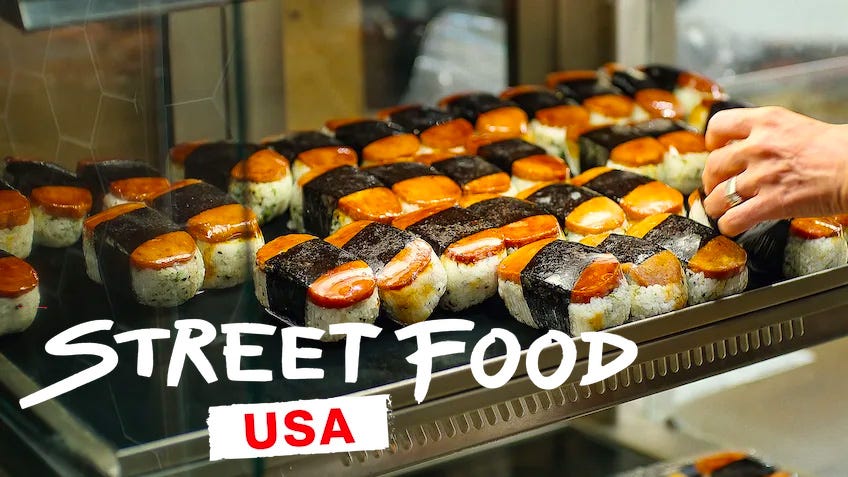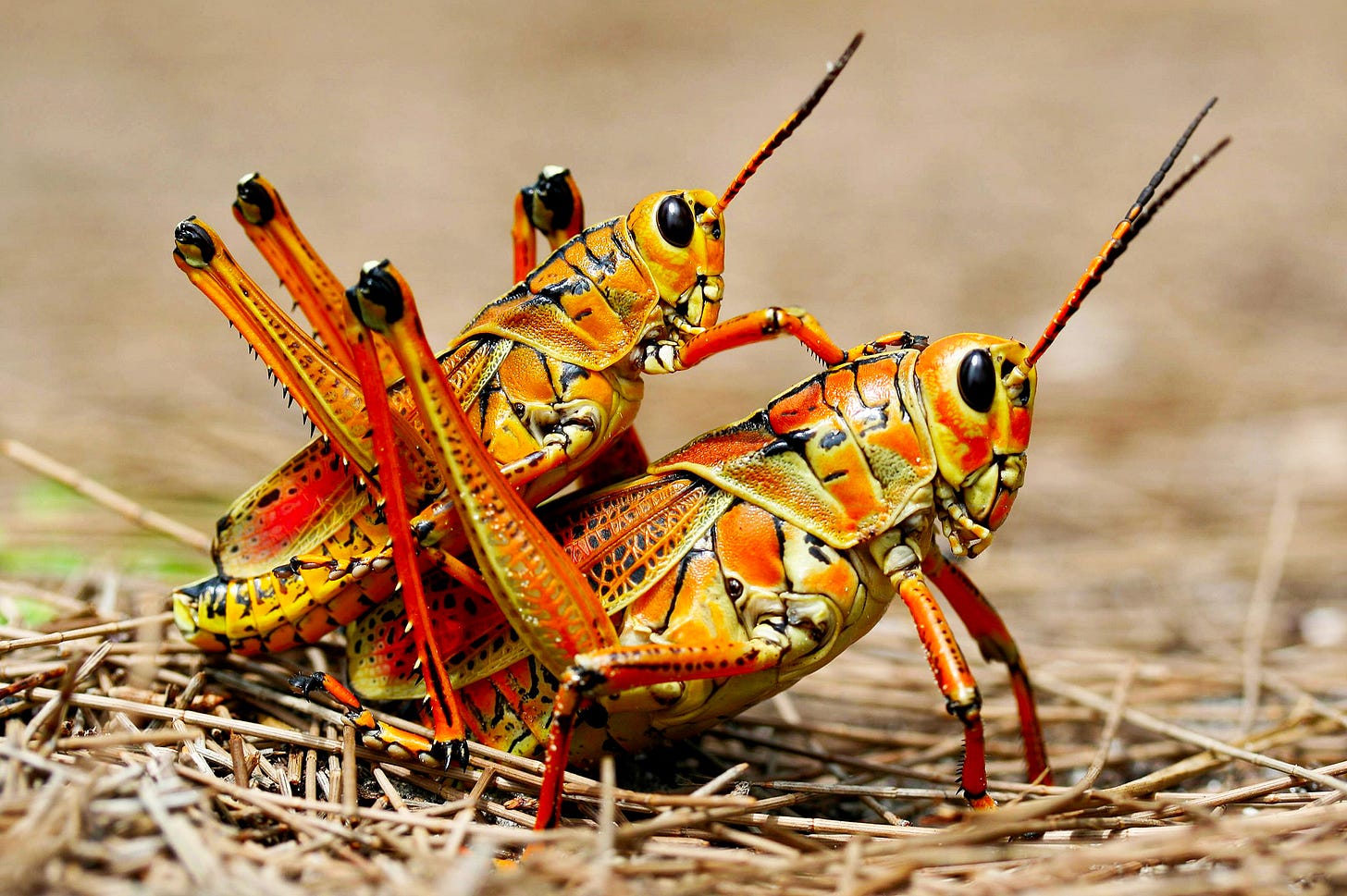Netflix recently premiered the third season of its popular series Street Food. My wife and I tuned in for a glimpse of savory offerings from Los Angeles, Portland, New Orleans and Oahu. But while she was able to focus on the fare, I (as always!) was distracted by the mindless discourse.

Socrates famously claimed that, “The unexamined life is not worth living.” Like Bill & Ted, I wish I could hop in a time-traveling telephone booth to meet the man. I bet Socrates would agree with me that the unexamined line is also not worth saying. But throughout each and every episode of Street Food one line is uttered, asserted, and echoed in an endless fractal of maddening repetition, “This (insert noun here) is so unique!”
Throughout the program, local, self-appointed foodies cudgel viewers with gluttonous appreciation of their home-grown fare. But invariably, the justification they ultimately offer for their awe is to claim their local cuisine is unquestionably “unique”. The selection of foods is unique. The flavor profiles are one-of-a-kind. The manner of preparation is unlike anything anywhere else in the world. And, of course, its all born of a unique culture, created from a distinct pattern of immigration, colored by unique characters set in an incomparable locale.
In the Pixar superhero movie The Incredibles, the villain Syndrome famously develops technology that gives the illusion of super powers. His plan, predictably, is to sell his technology for profit. But Syndrome’s motive is a bit more surprising. He hopes his inventions render all the world’s remaining superheroes completely superfluous since–in his words, “When everybody’s super…no one will be.”
Can you see how this applies? When all 21 locales featured across three seasons of Street Food—from Lima, Peru to Osaka, Japan to Miami, Florida—are equally lauded for being unique, then none of them are. Or better said, everywhere is. “Uniqueness” is clearly so pedestrian that it's really not worth pointing out. And it most certainly isn’t the reason why the hometown cuisine is so goddamn yummy.
The characteristic of being unique is itself not unique. In our world, multitudes of variation are rapidly generated in everything from glacial geology to genetic code. Every rift and ripple in every layer of existence creates a unique state at the most basic level. And as those unique states are compounded in ever-larger scales (first to individual organisms, then to ecosystems, neighborhoods, cities, nations, etc.) they generate an incalculable array of incomparable, combinations of traits. Or to put it simply: everything around us is unique in some way.
Here’s a fun thought experiment: have a look inside your refrigerator right now and take stock of what you find. I guarantee there’s a hodgepodge of juices, jams, jellies, dressings, preserved meats, pickles, and cheeses. Among leftover containers filled with fried rice, pasta, and baked potatoes maybe you find olives, sauces, cauliflower, tofu, tempeh, or a loaf of sprouted grain bread. Maybe you’ll find a flight of high-end craft beers, a bottle of hemp milk, a carton of brown miso, and a box of baking soda. Oh, wait…that’s my fridge. Yours will be different, and distinctly unique in its composition, quantities, and arrangement.
Now, aggregate the contents of your fridge with all the refrigerators on your block, and the collection becomes even more novel. Invite those neighbors to an evening potluck and ask them to prepare a dish to share. They will do so according to their individual knowledge, skills, preferences, traditions, and culture. So the mixed-up-Rubik’s-cube of a meal you’ll consume that night is every bit as unique as the street food of Oaxaca, New York, or Ho Chi Min. Dishes from those far-flung cities may use different ingredients, they may taste more flavorful, or they may seem more exotic. But let’s be clear: they are no more “unique”.
Our fealty to the “cult of originality” is, of course, yet another manifestation of our blatant discomfort with being perceived as common. Why is it not sufficient to say we simply enjoy the way particular foods are prepared or seasoned? Instead, we needlessly inflate the importance of unrelated, external qualities—in this case “uniqueness”—to justify our own internal, subjective preferences. What’s more, we assign false meaning and value to the food we encounter to elevate the simple act of eating above the ordinary. But in reality, we are just participating in an exceedingly common practice across cultures: kitchen alchemy.
Street Foods hasn’t yet focused on Europe, but I’m sure it will in a future season. When it does, I’m pretty sure they’ll focus on Greece. My guess is they’ll find some local foodie to gush over the delicious dolmas. Or assert that souvlaki is simply scrumptious. Or even go so far as to say that moussaka is a “mouthful of magic”. But I also suspect several palette pundits will make the unexamined claim that the allure of Greek food is somehow tied to an unrelated, “unique” confluence of factors.
So out of silent respect for Socrates himself, I ain’t watching.
Subscribe free-of-charge to receive updates delivered directly to your inbox.
Bonus Content 4 You!
This past week, I published book reviews from two very funny fellows, and a throwback piece from my days in the Florida Everglades featuring these colorful critters…
As you know, I don’t charge a dime for my priceless thoughts. But if you’re inclined to provide support, here are a few ways to do so:
If you liked this post share it with your friends with a kind word using the button below, or
connect with Noon at the Park on Twitter, Instagram and Facebook, or
Buy yourself something nice on Amazon. Start with this personalized recommendation, but feel free to put whatever you want in your cart and hit “Buy Now”, or…
you can just buy me a beer.
See? You don’t need to buy a subscription to the Washington Post to support quality journalism!






